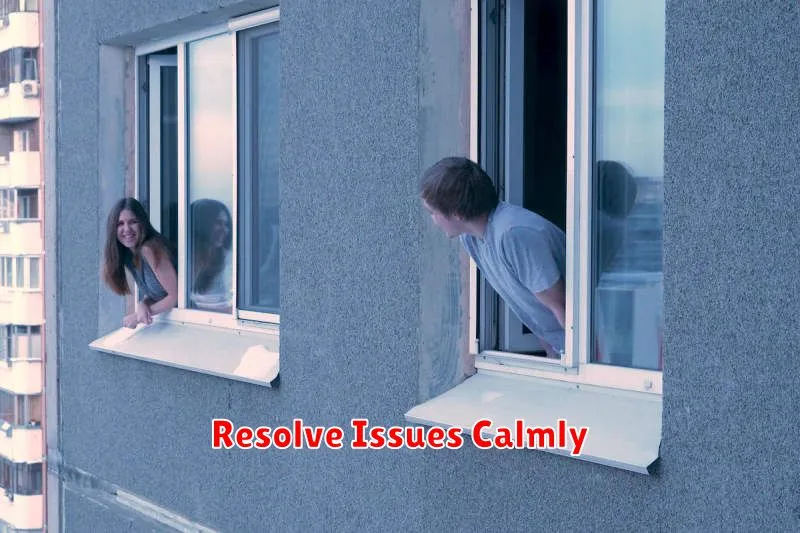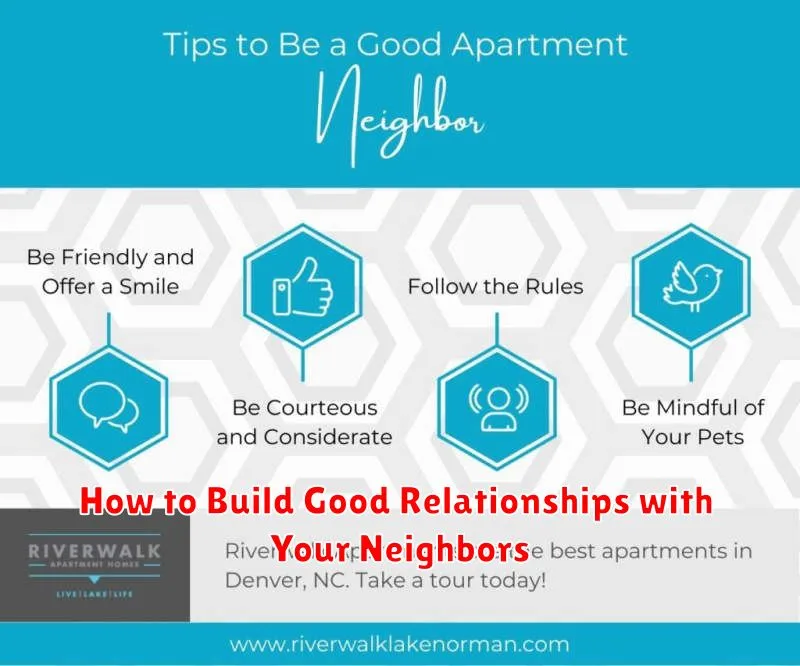Building good relationships with your neighbors is essential for a harmonious and pleasant living environment. Neighbor relationships can significantly impact your daily life, influencing everything from your sense of community and security to your overall well-being. This article provides practical advice on how to cultivate positive relationships with the people who live around you, focusing on effective communication, respectful interactions, and building a strong sense of neighborhood. Whether you’re looking to resolve existing neighbor disputes, establish connections in a new neighborhood, or simply enhance your current neighbor relationships, the strategies presented here will help you foster a friendlier and more supportive community.
From simple acts of kindness to proactive communication strategies, there are numerous ways to establish and maintain good relationships with your neighbors. By understanding the importance of neighborly relations and learning practical steps to improve them, you can transform your living experience. This guide will explore strategies for effective communication with neighbors, offer tips for resolving common neighborhood issues, and suggest ways to build a stronger sense of community within your neighborhood. Let’s delve into how you can cultivate positive neighbor relationships and create a more harmonious living environment for yourself and those around you.
Start with a Friendly Introduction
A simple introduction goes a long way in establishing a positive relationship with your neighbors. Don’t wait for them to come to you. Take the initiative and introduce yourself shortly after moving in or when you see a new neighbor.
A warm smile and a brief greeting can make a world of difference. Consider bringing a small treat, such as baked goods, as a welcoming gesture (though it’s certainly not required). This small act of kindness can help break the ice and create a positive first impression.
Keep the introduction concise and friendly. Share your name and perhaps mention something about yourself, like your occupation or hobbies. Don’t overshare during the initial introduction. Focus on being approachable and welcoming.
Remember basic etiquette. Be mindful of the time of day when you introduce yourself. Avoid early mornings or late evenings when people might be preparing for their day or settling down for the night.
Respect Shared Spaces
Shared spaces, such as hallways, laundry rooms, and yards, require mutual respect. Keeping these areas clean and tidy benefits everyone. Avoid leaving personal belongings in shared spaces for extended periods, as this can inconvenience others.
Noise levels should be kept to a minimum, especially during nighttime hours. Be mindful of activities that could generate excessive noise, such as playing loud music or using power tools late at night. If you are planning a gathering that might be noisy, consider informing your neighbors in advance.
If your building has designated parking spots, ensure you park only in your assigned space. Avoid blocking other residents’ access to their parking or common areas. If guest parking is available, encourage your visitors to utilize those spaces.
Resolve Issues Calmly

Disagreements are a natural part of any relationship, including those with your neighbors. When issues arise, it’s crucial to address them calmly and respectfully. Avoid confrontations fueled by anger. Instead, approach your neighbor with a willingness to listen and understand their perspective.
Begin by clearly and concisely explaining the issue as you see it, focusing on facts rather than accusations. Active listening is key. Pay attention to what your neighbor has to say, even if you don’t agree. This demonstrates respect and helps build understanding.
Work together to find a mutually acceptable solution. Compromise is often necessary. If you find it challenging to communicate effectively or reach a resolution on your own, consider involving a neutral third party, such as a mediator, to facilitate the conversation.
Join Community Events
Participating in community events is a fantastic way to connect with your neighbors in a relaxed and informal setting. Block parties, festivals, and holiday celebrations offer opportunities to mingle and get to know the people who live around you.
These events often involve shared activities, fostering a sense of community and belonging. Contributing your time or skills to help organize an event is another excellent way to build connections and demonstrate your commitment to the neighborhood.
Even smaller gatherings, such as a neighborhood watch meeting or a cleanup drive, can provide valuable opportunities to meet your neighbors and contribute to the overall well-being of the community. Active participation in community events demonstrates your interest in building positive relationships and strengthening neighborhood ties.
Offer Help When Possible

A key aspect of fostering positive neighborly relationships lies in demonstrating a willingness to lend a hand. Offering assistance, even in small ways, can make a significant difference. This doesn’t necessitate grand gestures; rather, it’s about being mindful of opportunities to provide practical support.
Consider offering help with tasks like carrying groceries, collecting mail during vacations, or watching over pets. Perhaps your neighbor is struggling with yard work; offering to assist can be a thoughtful gesture. These small acts of kindness contribute significantly to building a sense of community and mutual support.
However, it’s crucial to offer help genuinely and without expectation of something in return. Be mindful of your neighbor’s boundaries and comfort levels. A simple, “Is there anything I can help with?” can go a long way in establishing a positive connection without being intrusive.

